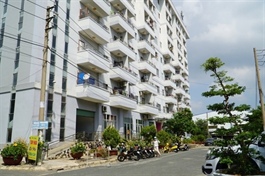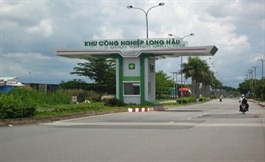Associations insist on land value u-turn
Associations insist on land value u-turn
Policy tweaks that seek to change the way land and property is valued are causing unease in the real estate sector.
A draft decree amending and supplementing Decree No.44/2014/ND-CP on land price rules, as well as a draft circular amending and supplementing Circular No.36/2014/TT-BTNMT on land valuation methods, were consulted on by policymakers and enterprises leaders at a seminar held by VIR on July 27.
According to current regulations, the seminar heard, there are currently five methods of land valuation: direct comparison, deduction, income, residual, and land price coefficient, but the two methods of residual and deduction are expected to be removed from the draft amended Law on Land.
However, business associations such as the Vietnam Confederation of Commerce and Industry, Vietnam Valuation Association, and Ho Chi Minh City Real Estate Association say the residual methodology is still widely used worldwide and in Vietnam, and that the elimination of this method in the amended land law is not advisable in both theory and practice.
Residual land value is calculated by subtracting from all costs associated with the development from the total value, including profit but excluding the cost of the land itself.
According to Dr. Vu Dinh Anh, abandoning the residual methodology in land valuation goes against development trends, meaning many projects will not be priced appropriately and could cause market congestion.
“The model is still widely used around the world as well as in Vietnam. In fact, based on land use purposes, each type of land will need different valuation methods with irreplaceable individual value,” Anh said. “Particularly, the residual methodology will help determine the land price for future use, which is a crucial and meaningful method in economic development, especially for industrial real estate, commercial business, and real estate projects.”
For Vietnam, he added, this is an even more important issue when the country is in the development stage and the demand for land is high. “Therefore, it would be absurd and difficult to understand why Vietnam would reject global experience and abandon a method that has a scientific, practical basis and is widely applied,” Anh added.
Nguyen Tien Thoa, chairman of the Vietnam Appraisal Association, said that abolishing the residual methodology would be inaccurate in both science and practice. “Calculating the market price of a land plot cannot be applied using all methods together, but requires choosing one based on the specific conditions of each type of land, depending on the purpose of use, the market, transactions, and profitable capability,” Thoa said.
Dr. Tran Xuan Luong from the National Economics University agreed that it is necessary to retain the residual methodology and supplement input data for the land price determination system.
“The proposal to remove the residual methodology would have a huge impact and cause land valuation to return to the pre-2007 period. This makes the land valuation activities more difficult,” said Luong.
On July 10, Prime Minister Pham Minh Chinh requested the Ministry of Natural Resources and Environment and people’s committee leaders of localities nationwwide to urgently remove issues in land valuation. The request asked the ministry to submit to the government for a decree amending and supplementing Decree 44 and Circular 36 before the end of July.






















